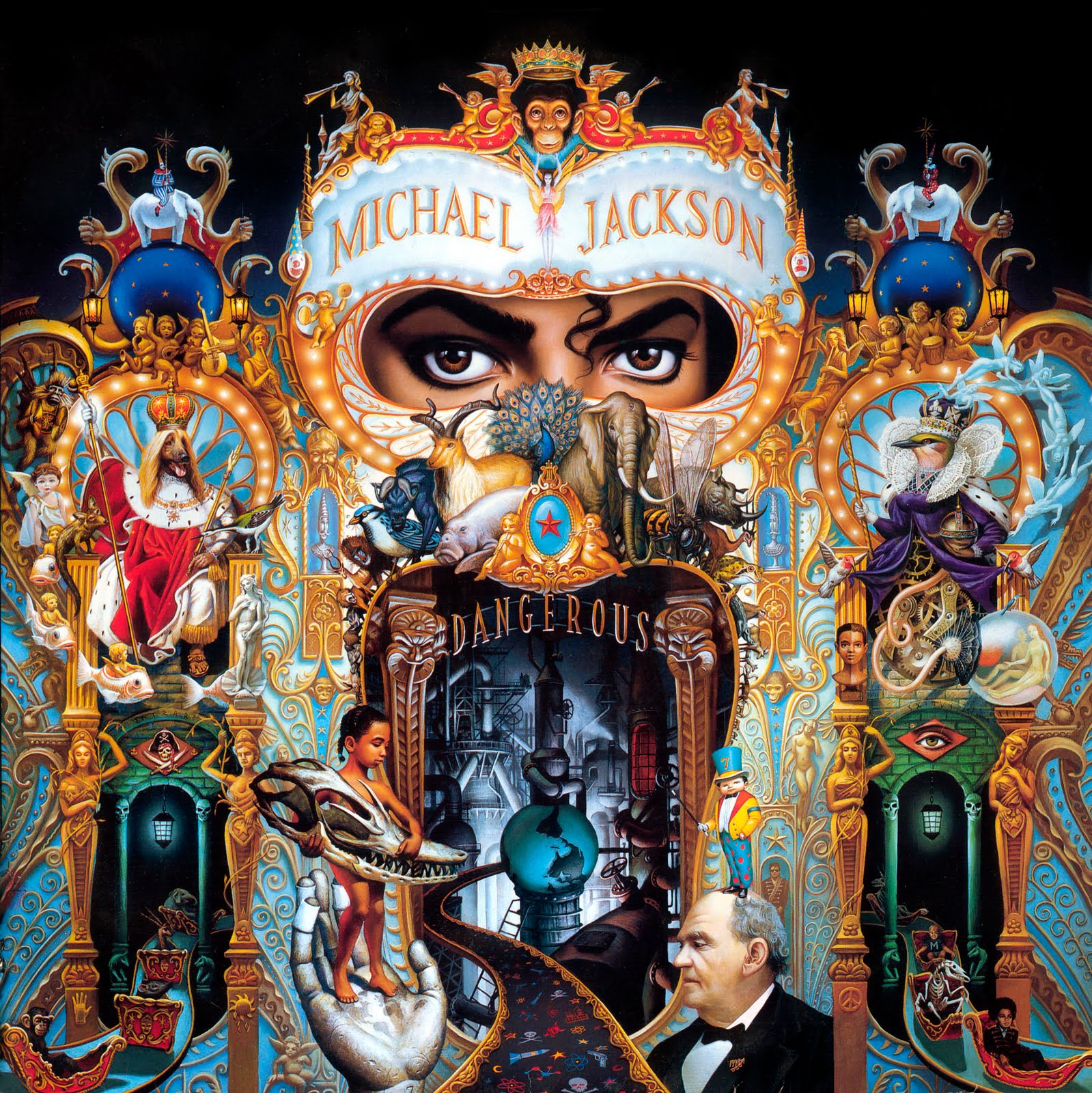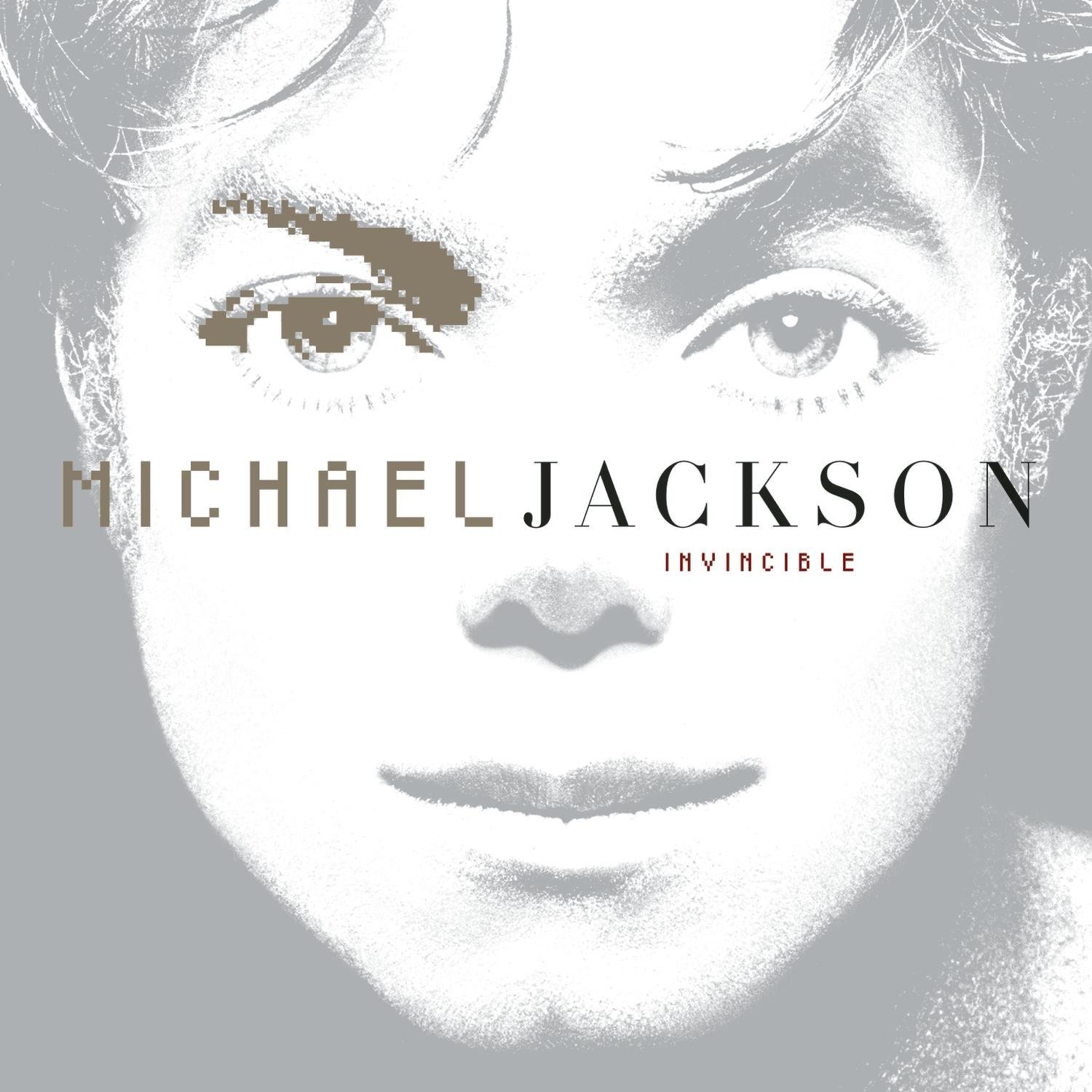1991
Tag: Teddy Riley
Whatever Happens ( song ) … Michael Jackson
2001
Just Got Paid ( song ) … Johnny Kemp
1988
audio review : Blood On The Dance Floor ( song ) … Michael Jackson
The main flaw of this song has less to do with music than promotion. Epic Records, Michael Jackson’s label ever since Off The Wall, is trying to push this as a new single despite the fact that it’s (apparently) at least six years old. Some of the vocals may be new, I don’t know, but the music; the drumbeat of which is a replica of Remember The Time; isn’t. That’s a major marketing glitch that could’ve easily been fixed by simply releasing the song as an outtake from the Dangerous album. It’s also a bad look for producer Teddy Riley, considering the fact that it’s only taken six years for his New Jack Swing to sound old.
Other flaws, like lack of bass on a song that should be pounding the club and subpar vocal melodies during the verses, are relatively minor. Aesthetically this is a good song. The protagonist, a knife-wielding killer named Susie, is bad, at least in a moral sense, but the chorus sounds catchy enough, especially during the final peak when Jackson starts hyping it with his signature ad-libs. The song goes from good to great for about twenty seconds. “It was blood on the dance floor,” Jackson sings with masterful inflections, “It was blood on the dance floor.” The last two times he says it are particularly striking.
my rating : 4 of 5
1997
Teddy’s Jam 4 ( song ) … Teddy Riley
2013
Remember The Time ( song ) … Michael Jackson
She Drives Me Wild ( song ) … Michael Jackson
1991
In The Closet ( song ) … Michael Jackson
Why You Wanna Trip On Me ( song ) … Michael Jackson
1991
Teddy Riley talking about meeting Michael Jackson and doing music for his Dangerous album
Heaven Can Wait ( song ) … Michael Jackson
2001
Teddy Riley explaining his involvement in Michael Jackson’s Dangerous and Invincible albums

I was the scariest person on earth when I met Michael Jackson [laughs]. When I first met him he scared the [crap] out of me…literally. I was at his compound in a room that [housed] all his accomplishments. I saw his humanitarian awards…all of that stuff. And there was also a chessboard there in the middle of the room. So I’m touching it because it’s gold and platinum. And when I put my hand on the first piece Michael had his hand on my shoulder. And all I could do was fall to the ground. All I saw was Michael laughing. That put me at ease because usually when you are touching somebody’s stuff in their house they look at you funny, but Michael just laughed. My heart was calmed down, until it was time for us to go into the studio to work on Dangerous. But before that whole experience of working with Michael I was going through a big transition in my life.
Like I said, I lost both my brother and best friend. So, right after that Guy show I’m driving in my Ferrari. I had gone through so much and all I wanted to do was produce. So I get a call on my cell phone from Michael Jackson! He’s telling me that he wants to work with me! Michael was like, ‘Can you be here next week?’ That was the transition between Guy and me taking my career to the next level. I was struggling. I had moved back to the projects. I was going from hotel to hotel. And you know what saved me on my way to working with Michael? It was doing the remix to Jane Child’s ‘Don’t Wanna Fall In Love’. I can remember being in a hotel and Benny Medina (influential label executive) called me. He’s like, ‘I really want you to do this Jane Child remix because I want it to go urban…it’s too white’ Now, I already loved ‘Don’t Wanna Fall In Love’. It’s a record that I had wished I produced. And then Benny calls me! Funny how the universe works. I knew I was going to tear that remix up.
That song saved my life. I’m thinking $20,000 for that remix. I thought it would help me pay off my credit card because that’s all I had. I was on the outs with Zomba, so I wasn’t getting any money from publishing. They thought I was stocking songs away. But Benny got me $75,000! That money got my family back to New York. I was ready to move everyone to New Jersey to a three flat condo. But my mom told me she wasn’t going to move in with us until I brought her a house. And then my brother Brandon was shot. This was all in my mind going into Dangerous.
Bringing back Michael to his R&B roots is something that I stood for. I didn’t just want to go the pop route because that’s not what he called me for. He called me for that New Jack Swing. That’s what he wanted and that’s what he got. When I was working on ‘Remember The Time’ this was at the same time I was doing a remix for ‘D-O-G Me Out’ in one room, ‘Don’t Wanna Fall In Love’ in another room, and all of the other tracks I was presenting to Michael. I was at Sound Works studio in New York. I was using Q-Tip’s (lead MC and producer of A Tribe Called Quest) little studio he was renting out. When I told him I needed a studio to work on Michael Jackson songs he was like, ‘Oh, hell yeah!’
Working with Michael was like going to college. He basically gave me the map. He navigated me on how to actually compose. He taught me all the different ways of working with Quincy Jones and Greg Phillinganes. When I played my demos for Michael he stopped me at the fifth song, which was ‘Remember The Time.’ He took me to the back room and I thought I was going to get fired. I thought I had done something wrong, but it was a chord that he couldn’t get around. He didn’t know the church chords. The first chord you hear on ‘Remember The Time’ started off that song in a very church way. He never started off his songs in that way, and that’s why he pulled me in the back because it was so unusual for him.
Michael was testing me to see what the chord really was and what it meant to me. And he wanted me to play it right in front of him on this piano he had in his room. He was used to the straight C majors. He wasn’t used to the C augmented chords. I could say I introduced the New Jack Swing chords to him. All of those songs were great to work on: ‘In The Closet’; ‘Jam’; ‘Can’t Let Her Get Away’…that’s history for me. It was a great feeling to be a part of a huge selling album like that…over 30 million records of Dangerous.

Mike and me started the Invincible album in New York. That’s when Michael built this studio for me on the top floor of a building. He had Criteria Studios build me a studio in a penthouse in two weeks. I kid you not. I went home and Michael was like, ‘Go home…the studio will be built in two weeks.’ We finished everything else in Miami. When I started working on Invincible one of the songs that stood out for me was ‘Whatever Happens.’ It came from an artist that was signed to my label. We were going to sign him to Interscope, but this guy started tripping out. So I ended up going to the writers of that song and asked them could I produce the song for Michael. They let me do it. I told the label that I wanted a 40-piece orchestra to do strings on this record. And I told Michael that it would be great to have Carlos Santana on the song because of the guitars on there. Michael was like, ‘Okay, we will make that happen.’
I wanted ‘Whatever Happens’ to be special. But we had a problem. Santana didn’t want to leave the house at that time. He told us, ‘This is family time.’ He takes time out, for months, to spend with his family. So anything that would have to be done would be done at his home, so we went to his home studio. Santana was such a good guy…very spiritual. And he is a very big fan of my idol Miles Davis. This dude had a Miles Davis guitar and all these performances on video. During the guitar track to ‘Whatever Happens’ Santana was doing the whistling that you hear. And Michael loved it. I remember his excitement over the record. He said, ‘Let’s keep it!’ So we are working on the Invincible album and around the same time I invited Michael to Virginia. That was moment Virginia had a real respect for me. They were like, ‘If he could bring Michael Jackson to Virginia as well as Whitney Houston and Bobby Brown, he’s bringing revenue to the state. So we have to respect him.’ And I’m talking about getting respect from the political side.
I was in so much mess with this album [laughs]. Michael had me responsible for so many things. I remember Tommy Motolla (one-time head of Sony Music Entertainment) cursing me out telling me, ‘This will be the end of your career if you don’t turn over those masters!’ I had no idea that Michael had told him I had the masters [laughs]. I called him up and said, ‘My God Michael…you put me in trouble with Tommy Motolla. Do you know who Tommy Motolla is? But I ended up helping Michael. I took the masters and I held them for him. Michael was upset with the marketing plans for the Invincible record. I was going to stand behind Michael and that’s what I did. To me it was an album that was going to do the big numbers. But when Michael saw the marketing plans he told me, ‘I’ll be surprised if this album does only two million.’ They took money from his budget, too. I didn’t care about anything else. I just believed in Michael.
2012
vibe.com

![audio review : Blood On The Dance Floor [ History In The Mix ] ( album ) … Michael Jackson audio review : Blood On The Dance Floor [ History In The Mix ] ( album ) … Michael Jackson](https://marcellee.com/posts/7893.jpg)

